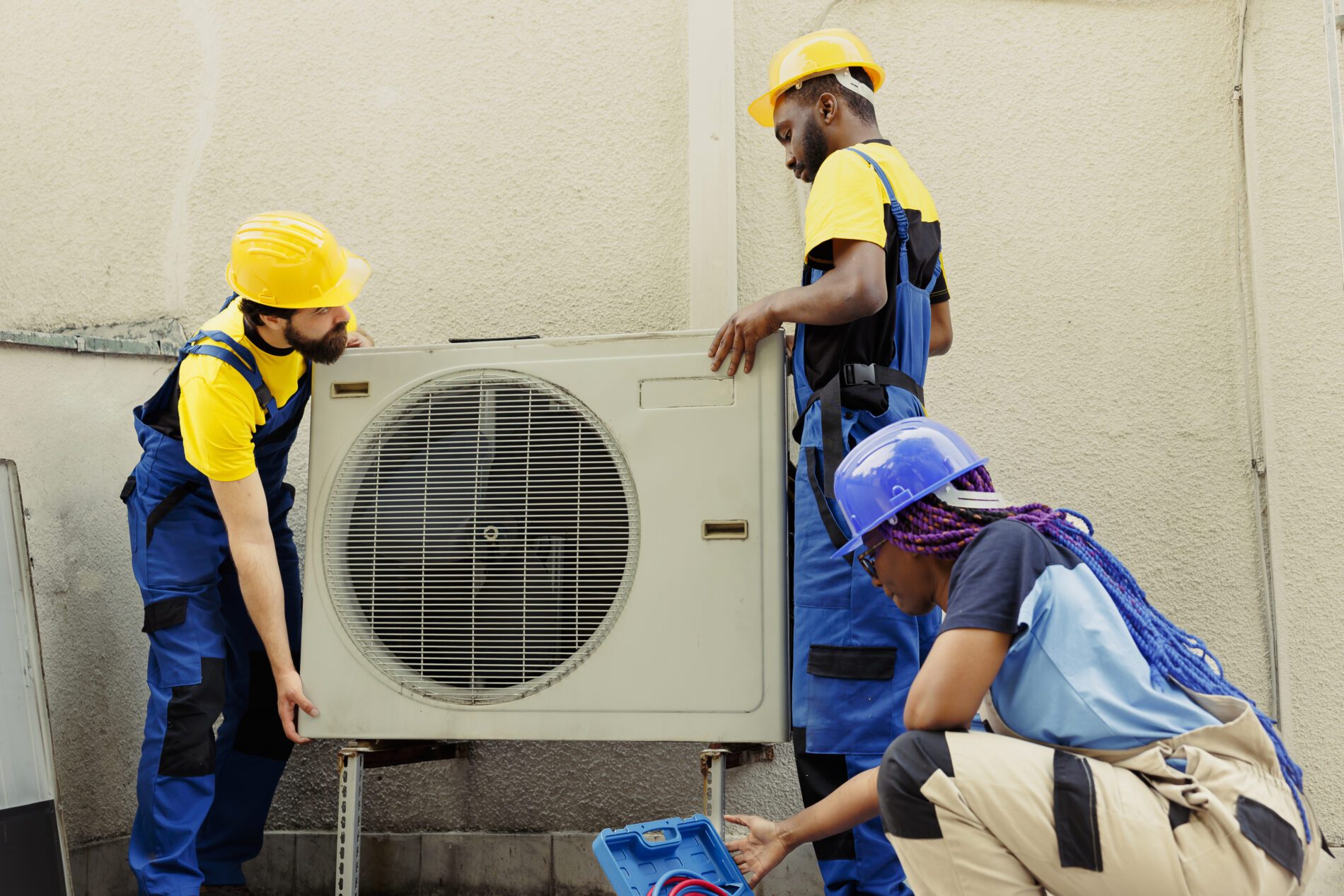Table of Contents
Toggle
Best 5 Tips of Air Conditioner Replacement- AC Repair Garland
5 Factors to Consider Before Your Air Conditioner Replacement
Before rushing out to buy a new one, there are several key factors you should consider. From energy efficiency to budget constraints, making an informed decision can save you money and keep your home cool all summer long. In this post, we’ll cover five important factors that you should take into account before an air conditioner replacement.
Why Consider an Air Conditioner Replacement?
There are a few key factors you should consider before deciding on Air Conditioner Replacement. First, the unit itself costs money. If your ac is more than 10 years old, it may be time for an upgrade. Newer units are much more energy-efficient, which can save you money on your electric bill each month. Additionally, newer units often come with better warranties than older ones.
Another factor to consider is the efficiency of your current ac. If it no longer cools your home as well as it used to, it may be time for a replacement. Additionally, if your AC unit makes strange noises or smells bad, these could be signs that it is no longer operating efficiently and needs to be replaced.
Finally, you should also consider the climate in which you live when deciding whether or not to replace your ac. If you live in an area with mild summers, you may not need an air conditioner replacement unit as often as someone who lives in a hot, humid climate.
New AC Buying Guide
There are a few key things to look for when buying a new AC. The first is the SEER rating. This is the Seasonal Energy Efficiency Ratio and it measures how much cooling your AC unit produces for the energy it consumes. A higher SEER rating means more efficiency and lower energy bills. A unit’s size should also be considered. You’ll want to choose an AC unit that’s properly sized for your home. too small and it won’t be able to keep up, too large and it will cycle on and off too frequently, wasting energy.
Lastly, you’ll want to think about features like humidity control, multi-stage cooling, and programmable thermostats. These features can improve comfort levels and help you save money on your energy bills.
Different Types of Air Conditioners
The market today offers a wide range of air conditioner types. Buying the wrong type of AC can lead to inefficient cooling, higher energy bills, and even comfort issues. Air conditioners can be classified into the following types:
- Central Air Conditioners: A central air conditioner is a single unit that is typically installed outdoors. The unit pulls in warm air from your home, cools it, and then distributes the cooled air through a system of ducts. There is no doubt that central air conditioners are the most expensive option, but they are also the most efficient.
- Room Air Conditioners: Room air conditioners are smaller units that can be installed in a window or through an exterior wall. They cool one room or area of your home and are a good option if you don’t need to cool your entire house. Room air conditioners can be less expensive to install than central units, but they are also less efficient.
- Ductless Mini-Split Air Conditioners: Ductless mini-split air conditioners consist of two parts: an outdoor compressor/condenser and one or more indoor units that blow cooled air into your home. These systems don’t require ductwork, so they can be a good option if you have an older home without any existing ductwork. Ductless mini-splits can be more expensive to install than other types of air conditioners, but they are very efficient.
- Heat Pumps: Heat pumps are a type of air conditioner that can also provide heat in cooler months. An air-source heat pump and a geothermal heat pump are the two types of heat pumps. Air-source heat pumps pull warm air from the outside and blow it into your home, while geothermal systems use the constant temperature of the ground to provide heating and cooling. Heat pumps are very efficient, but they tend to be more expensive to install than other types of air conditioners.
Advantages and Disadvantages of Different Air Conditioners
There are many types of air conditioners on the market, and each has its own set of advantages and disadvantages. Central air conditioners are the most common type of AC unit, but there are also ductless mini-split AC units, window AC units, and portable AC units. Here is a rundown of the advantages and disadvantages of each type of AC:
Central Air Conditioners
Advantages:
- Can cool an entire home or office
- Relatively quiet operation
- Can be used in conjunction with a furnace to provide heating as well as cooling
- It is possible to improve indoor air quality with air filters
Disadvantages:
- Requires professional installation
- Can be expensive to operate
- Not suitable for cooling only small spaces
Ductless Mini-Split Air Conditioners
Advantages:
- Can cool individual rooms or zones
- More energy efficient than window units
- Quieter operation than window units
- No ductwork is required for installation
Disadvantages:
- Higher upfront costs than window units
- Requires professional installation and setup
- Can be difficult to retrofit into existing homes or offices
Window Air Conditioners
Advantages:
- Inexpensive upfront cost compared to other AC types
- Easy to install and set up in most windows (provided the window is large enough)
- Can be used in smaller spaces, such as apartments or dorm rooms
Disadvantages:
- Often noisy operation due to their design and location in the window
- Can be difficult to fit into some windows due to size constraints
Portable Air Conditioners
Advantages:
- Easy to move between rooms depending on the need
- Less expensive upfront cost than other AC types
- No permanent installation is required
Disadvantages:
- Maybe less energy efficient than other AC types
- Noisy operation
- Can be cumbersome and difficult to move from room to room
Cost Considerations
The cost of air conditioner replacement will vary depending on the size of your unit, the type of unit you choose, and the installation costs. The average cost to replace an AC is $3,000. If you have a central air system, the cost will be slightly higher.
You also need to consider the cost of running your new ac. Air conditioners are energy-intensive appliances and can add significantly to your monthly energy bill. Be sure to compare the energy efficiency ratings of different units before making a purchase.
Finally, you should factor in the maintenance costs associated with owning an air conditioner. Regular maintenance is important to keep your unit running efficiently and prolong its lifespan. Expect to pay around $100 per year for basic maintenance tasks like cleaning and tune-ups.
Maintenance Tips
As the warmer months approach, many homeowners begin to think about air conditioner replacement. While a new air conditioner can be a significant investment, it can also provide substantial savings in energy costs and improve the comfort of your home. There are a few key factors to consider before making this decision regarding air conditioner replacement:
- Maintenance Tips: Air conditioners require regular maintenance to keep them running efficiently. Be sure to check and clean the filters monthly, and have the unit serviced by a professional at least once per year.
- Efficiency: Older air conditioners can be very inefficient, costing you more money in energy bills each month. Newer models are much more energy-efficient, so you’ll save money in the long run by investing in a newer unit.
- Cost: The initial cost of new air conditioners can be significant. However, you should factor in the cost of energy savings over time when making your decision. In many cases, the payback period for a new air conditioner is less than five years.
- Comfort: Older air conditioners may not provide the same level of comfort as newer units. Newer units often come with features like variable speed fans and two-stage cooling that can make a big difference in your home’s comfort level during those hot summer months.
Air conditioner replacement is a major decision, and there are several factors to consider. The size of the unit, its energy efficiency rating, repair costs, installation costs, and how long it can last will all have an impact on your final decision. Investing in a new unit that meets all your needs should be done with care to ensure you get the most out of it for years to come. With these considerations in mind, you’ll be able to make the best choice when selecting an air conditioner replacement for your home.
Choose ACrepair-Garland For Your HVAC Repair!
As you can see, there is a lot to consider when it comes to AC repair and maintenance. From understanding the types of units available, knowing how to diagnose problems, and being able to recognize signs of wear and tear, this ultimate guide should have helped you gain the knowledge necessary for making an informed decision about your unit. As always, if you have any questions or need help with any aspect of AC repair and maintenance do not hesitate to contact a qualified technician who will be able to provide expert advice.
The good news is you’ve found an experienced air condition company that can do all of the above. AC Repair Garland will have your system performing at its finest in no time! Give us a call at (469) 229-7740 and visit our website—www.acrepair-garland.com

